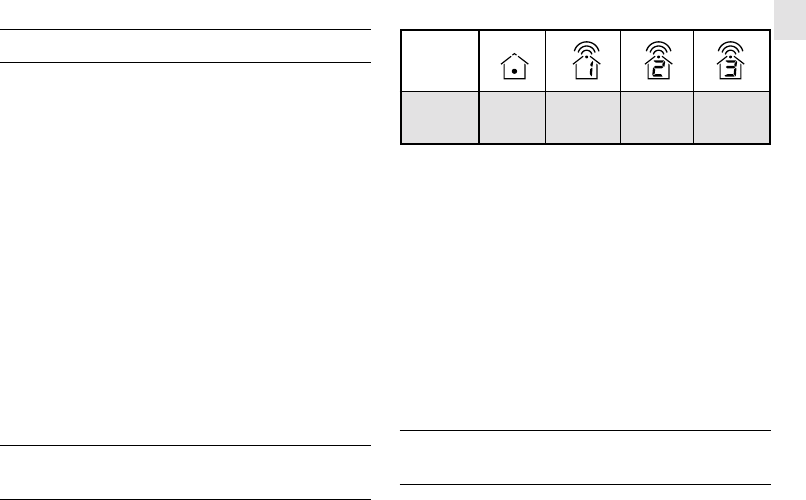
5
EN
GETTING STARTED
Once batteries are placed in a given remote sensor unit, it will start
transmitting information at 40-second intervals.
Also, for approximately a 3-minute duration, the main unit will
automatically search for signals once batteries are installed. Upon
successful reception, the individual channel temperature reading
will be displayed on the top line and the respective humidity reading
on the bottom line. The main unit will automatically update its
readings at about 40-second intervals.
If no signals are received, blanks “ --- ” will be displayed and the
kinetic wave icon will not show.
To force a signal search:
◊ Press and hold IN/REMOTE for 2-seconds to enforce a
3-minute search.
This is useful in synchronizing the transmission and reception of the
remote and main units.
Repeat this step whenever you find discrepancies between the
reading shown on the main unit and that on the respective remote
unit.
HOW TO CHECK REMOTE AND
INDOORS TEMPERATURES
Display of readings from a remote sensor or the main unit is a one-
step procedure. The remote sensor channel or the main unit display
is indicated in a box under the kinetic-wave icon.
Kinetic-wave
Icon
Designated Indoor
Remote Remote Remote
Display Display
Display Display Display
Channel One Channel Two Channel Three
To display temperature / humidity readings from the main unit:
◊ Press IN / REMOTE until a dot is displayed in the box under the
kinetic-wave.
To display temperature / humidity readings from a remote
sensor:
◊ Press CHANNEL until the appropriate remote sensor channel is
displayed in the box under the kinetic-wave.
If no readings are received form one particular channel for more than
15 minutes, blanks “ --- ” will be displayed until further readings are
successfully searched. Check the remote sensor to ensure that it is
secure and that the correct channel has been selected. Optionally,
press and hold IN/REMOTE for 2-seconds to enforce a search.
HOW TO READ
THE KINETIC-WAVE DISPLAY
The kinetic-wave display shows the signal-receiving status of the
main unit. There are three possible forms:














